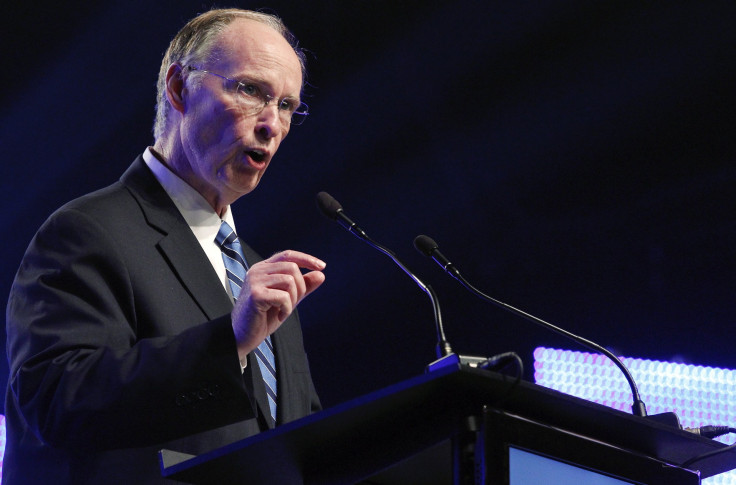NAACP Lawsuit Against Alabama Governor Aims To Preserve Birmingham’s Minimum Wage Hike

Two months after local activists won a minimum-wage increase in Birmingham, Alabama, they're now fighting to prevent the state from reversing their gains.
In late February, the Birmingham City Council approved a measure raising the city's minimum hourly wage to $10.10 from the federal minimum of $7.25. Just days later, Republican Gov. Robert Bentley voided the decision by signing House Bill 174, a law that prohibits Alabama cities from setting their own wage floors. An Alabama NAACP-led coalition responded by suing the governor Thursday, saying HB 174 infringes on the civil rights of Birmingham workers.
The Birmingham fight is part of a much larger struggle between national labor unions and business interests over the survival of local minimum wage efforts. Over the past few years, the labor movement and allied groups have pushed dozens of cities and states to implement significant wage hikes. Conservative groups and Republican state legislators have responded by pushing laws intended to hamstring those wage increases.
Leading the charge on the conservative side is the American Legislative Exchange Council, a coalition of private-sector leaders and state politicians whose "model legislation" proposals can be modified and formally introduced in legislatures across the country. One such blueprint is the Living Wage Mandate Preemption Act, which ALEC first offered to the world in 2002. The language of Alabama's HB 174 differs from the ALEC model, but the intent is the same: to block cities in a given state from unilaterally raising their minimum wages.
Laura Huizar, a staff attorney with the progressive National Employment Law Project, told International Business Times that more state legislatures have taken up pre-emption laws in recent years, a reaction to the growing success of minimum wage campaigns like Fight For $15. As relatively progressive cities in red states have lifted up their wages, Republican-controlled state legislatures have raced to invalidate those decisions.
"This has been going on for a number of years, but it has intensified in the past couple of years," Huizar told IBT. She estimated that legislators have proposed preemption laws in 15 states since the beginning of 2015.
North Carolina's House Bill 2, passed last month, is another prominent example. That law is most famous for its anti-transgender rules on public bathroom use, but it also includes minimum wage pre-emption language.
The Alabama NAACP lawsuit is an important test for one particular tactic against pre-emption. The plaintiffs in the suit are alleging that minimum wage pre-emption is a civil rights violation because it disproportionately harms Birmingham's low-wage workers of color. Nearly 75 percent of Birmingham's population is black, compared to 26 percent of the state's overall population, according to 2010 Census data.
Huizar said the lawsuit is very much tied to Alabama's idiosyncrasies" and, specifically, the way that race played a role in the way that Birmingham was targeted." But the national labor union SEIU, which has emerged as the main financial backer of minimum wage campaigns across the country, was quick to frame the legal complaint in a broader context.
"Nearly four in 10 Americans who are paid the minimum wage are people of color. For far too long, racism and racial anxiety have been used by corporations and wealthy elites to support policies that hold down wages and turn hard work into poverty jobs," said SEIU president Mary Kay Henry in a statement responding to the lawsuit. "We stand against attempts to divide us, and for higher wages that fuel inclusive prosperity for families of every race."
In response to an IBT request for comment, Alabama Attorney General Luther Strange said in a statement, "This lawsuit is really about a political dispute between the Birmingham City Council and the Alabama legislature. Nevertheless, the Attorney General's Office will vigorously defend Alabama law."
© Copyright IBTimes 2024. All rights reserved.






















